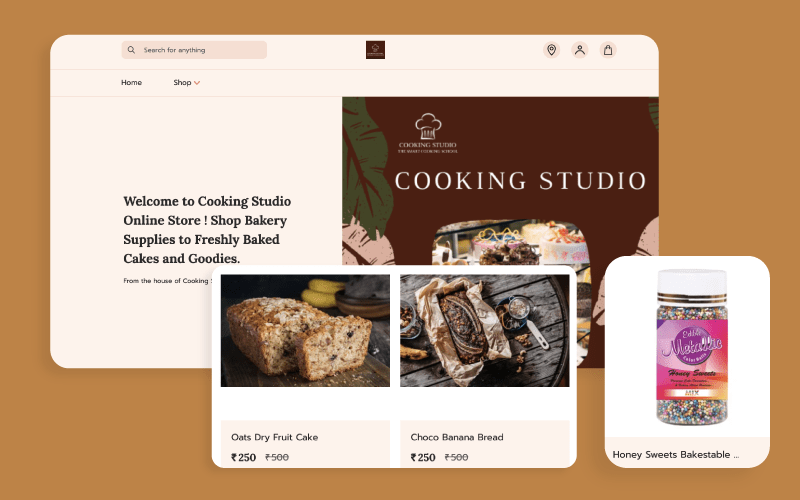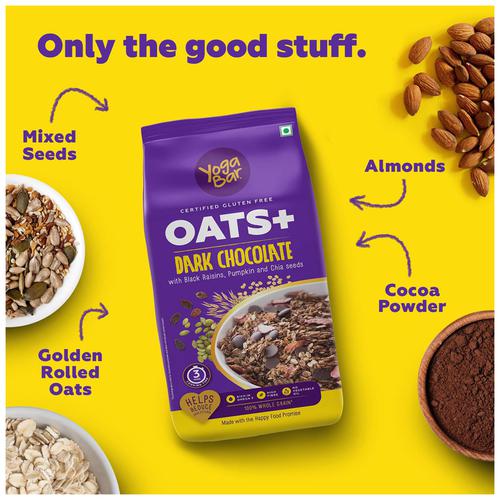Starting a food business at home can be challenging in a number of ways. The food industry has always had some unique challenges that have often led to the demise of many small and micro businesses.
But, we don’t want to discourage you. After all, India is a country where cultural differences have given rise to one of the most diverse cuisines in the world. That means, there is a plethora of opportunities waiting for you.
From the granny who loves cooking, to a health buff who wants others to eat nutritionally dense food – starting a food business can be the awesome entrepreneurial venture that you have been waiting for!
But before we discuss challenges and how to overcome them, let’s discuss how and where to start!
Contents
- 1 Starting an online food business – the basics!
- 2 Taste will always remain the king
- 3 A community will help you withstand DTC competition
- 4 Tap into the health food industry NOW
- 5 Transparency can help you compete with the big guns
- 6 Monitoring your proprietary
- 7 Here are a few things to keep in mind when you are starting a food business at home:
- 8 Free webinar with DTC investor – Devesh Varshney
Starting an online food business – the basics!
Well, to start a food business you have to first understand what is it that you want to sell.
Selling food online if done correctly can give you a loyal and thriving customer base.
Here is our complete guide to selling food online.
Now that you know the absolute basics of how to start, here are a few things that you should be aware of to give your customers the best experience possible.
After all, a happy stomach is the way to a happy heart.
Taste will always remain the king
This is probably why the food eCommerce industry is one of the hardest to tackle. A food brand will only get recognition when their food – TASTES good. Nothing can replace the value of good taste.
You can have stellar packaging, amazing customer service, and affordable prices. But if your food, the CORE product does not taste good – then your business is doomed from the start.

In eCommerce, the problem of customer acquisition becomes ten-fold considering, that your online visitors cannot actually taste your product unless they order it. If you sell a faulty physical product, you can still get it exchanged or replaced. That’s rarely the case for food businesses.
So before doing ANYTHING else, focus on getting your tastes right. Do taste tests with your friends, family, communities etc.
Related read: How to start an eCommerce business in India: 8 steps from 0 to launch
A community will help you withstand DTC competition
Now that we understand that taste is what is supreme in a food business. Your business can only grow if people who liked the taste tell other people that this product tastes good via reviews or recommendations.
This is where building a community becomes important. For an independent DTC brand that wants to sell food online, they should focus on first building a community that gives them true feedback on their product.
In the food industry, a community also helps you gain loyal customers that help you gain profits in the long run.
These loyal customers will end up being your “ambassadors” who talk about you within their social circles and help you gain customers organically.
Having your own community also helps you refine your product and understand consumer preferences.
Related read: How to convince customers to buy your product: 10 foolproof ways
Tap into the health food industry NOW
After the coronavirus pandemic, the health and wellness segment saw a considerable boost. People were more conscious of their lifestyle and eating habits. The food industry, accordingly also saw a pivot in interests toward food that was nutritional and healthy.
We spoke to an FMCG investor and the founder of 2 food brands – Devesh Varshney, who highlighted the duality of the eCommerce food industry.
“Your food brand either needs to focus on “functionality” or “taste”. Foods that have a functional purpose like ‘making you healthier, helping build muscles, anxiety relief etc” are considered premium. This allows you to charge more for these products. Food items like fresh food, home-cooked food, snacks etc. are based on taste and are priced accordingly.”
Related read: How to sell organic products online: the complete guide
Transparency can help you compete with the big guns
Since consumers are now more aware, it becomes the responsibility of an online seller to respect their preferences. Shoppers today want to know what is in the product. This is where even small businesses can compete with larger brands.
We see coffee brands talking about sourcing their coffee beans from particular regions across India. Businesses like Yoga Bar, PulpBrew, Organic Tattva, and Farmilicious, are setting examples by being transparent about their ingredients.

Monitoring your proprietary
Sometimes, keeping a secret can save your business! Tracking and monitoring what is yours, and keeping a close watch on everyone who knows the exact details of your food product is important.
Too many businesses don’t survive because their ideas can get stolen or copied. You can volunteer to sell recipes online, but if you are selling food products that are unique to you and are solely your creations, you should be careful about protecting your intellectual property.
Caramella, a baking business, conducts online workshops to teach baking recipes. This is an example of voluntary knowledge sharing.
Here is a blog that talks more about securing intellectual property by small business owners.
Here are a few things to keep in mind when you are starting a food business at home:
- Be aware of the robustness of your supply chain
- Try to be as ethical as possible when it comes to labour and sourcing
- Be honest and transparent about your ingredients
- Slowly build a sustainable packaging ecosystem
- Record lots of behind-the-scene videos for marketing purposes
- Allow guest walkthroughs by influencers
- Partner with other brands to send samplers out
Free webinar with DTC investor – Devesh Varshney
With a decade of experience in the DTC and FMCG space, Devesh has seen many startups trying to build a food brand that is a crowd’s favourite.
We recently uncovered some of his learnings as an investor, and his own experience as the founder of 2 food brands – Baba Fattosh & The Health Cravings Co. Check them out here!
You can connect to Devesh here or write to him at devesh.varshney@nafape.com.
It may sound complicated, but with the right kind of support and marketing, your food business is destined for greatness!
Instamojo has all the tools and features that micro-entrepreneurs who are just starting out need. Try the Instamojo experience for free!

